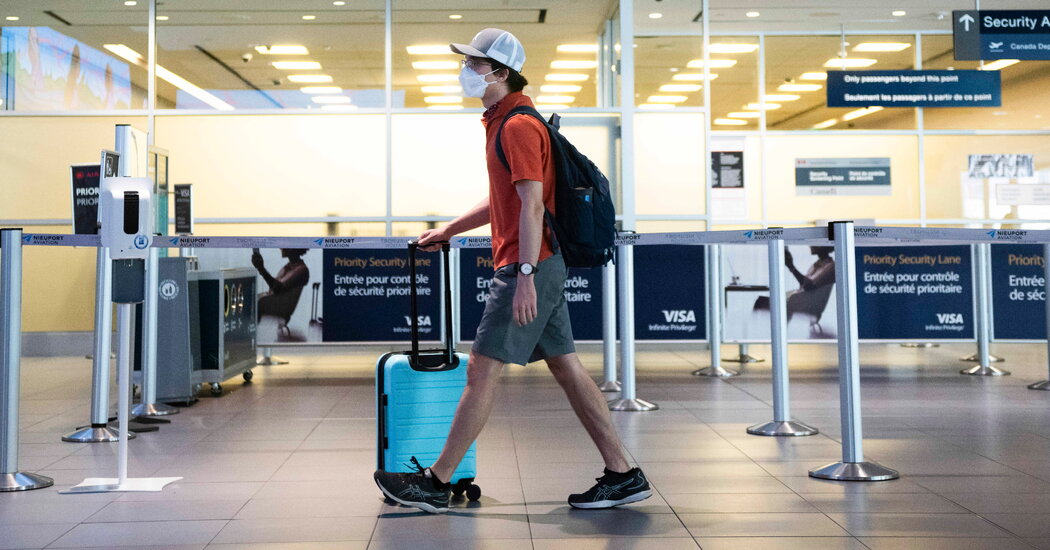With U.S. Covid-19 cases at very high levels and new vaccines still several weeks away, we asked experts for their advice on when and where to wear a mask.
It is the height of the summer travel season: Airplanes and cruises are packed, hotels are booked, and travelers are crowding theme parks and attractions. Yet throughout the United States, Covid-19 is currently circulating at very high levels.
During the peak of the pandemic, masks were ubiquitous in hotels, airports and other public places. They were required to fly, and many travelers donned them elsewhere to help reduce the transmission of the deadly coronavirus. Since the end of the mandate, and as travel has returned to or surpassed prepandemic levels, most travelers have abandoned preventive measures, particularly masks.
With updated vaccines not available until the fall, experts are reminding travelers about the benefits of masking, particularly in airports and poorly ventilated indoor environments.
Here’s what you need to know about masks and your travel plans.
What’s going on with Covid right now?
The number of reported cases appears to be climbing both in the United States and abroad. In the United States, there are “very high” levels of the virus in wastewater samples nationwide, according to the Centers for Disease Control and Prevention. The World Health Organization reported that cases around the globe rose by 30 percent from June 24 to July 21, compared with the previous 28 days. Put simply: There’s a lot of Covid out there.
How effective are masks? What is the best mask to use?
People who want to minimize their risk of respiratory illnesses like Covid (along with colds and the flu) should wear a mask while traveling, experts say. Even if you’re the only person wearing one on a train or at an airport, a mask continues to offer protection — provided you wear it properly, which means covering both your nose and your mouth.
“It does not eliminate the risk, but it substantially reduces the risk of exposure,” said Dr. Ziyad Al-Aly, the chief of research and development at the Veterans Affairs St. Louis Healthcare System, in Missouri. Aim for a high-quality mask, like an N95, a KN95 or a KF94, all of which filter out the overwhelming majority of virus particles and are far more effective at reducing the chance of a Covid infection than cloth or surgical versions. Masks should fit snugly on your face.
